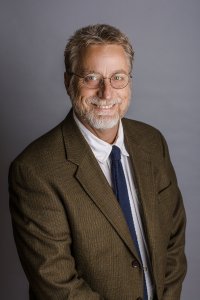Treating A.D.H.D.
 By: Shawn R. Cade, M.A., L.P.C., C.A.C., N.C.C. By: Shawn R. Cade, M.A., L.P.C., C.A.C., N.C.C.
Several years ago I was doing an assessment on a young boy, Johnny. His mother described him as “constantly on the go” and “won’t follow directions”. In my office at the time was a phone that was a hotline for physician’s use only. Johnny started to pick up the phone when his mother instructed him to stop and come sit by her. I explained that it was a special phone and that we could not play with it. Within seconds Johnny was up and had the phone in his hand. When his mother called him down, Johnny replied “But I can’t help it.” To which I responded, “Johnny I believe you, I don’t think you can help it.”
You see, Johnny was suffering from Attention-Deficit Hyperactivity Disorder (ADHD). ADHD is a commonly diagnosed disorder in youth today. According to Dr. Russell Barkley, a well-known authority in the field, “Attention-Deficit Hyperactivity Disorder is a developmental disorder characterized by developmentally inappropriate degrees of inattention, over activity, and impulsivity”. It is very important as we discuss ADHD, that we separate what is normal childhood development from that which requires professional intervention. The first question I would ask would be “Is it causing problems at home, school, or work?” If the answer is yes, then further assessment may be appropriate.
A thorough assessment should involve information from two or more settings. For a school age youth, this would include home and school. It is best to get as many teachers as possible involved, as youth often react differently in different environments and to different teaching styles.
It is also very important that the individual receive a complete physical evaluation from their pediatrician or family doctor. Inattention and hyperactivity can be masking other physical problems. A comprehensive physical workup can help to rule out any physical difficulties that could be interfering with the individual’s ability to maintain attention.
If ADHD is present, what can we do? Many people never seek assistance for ADHD because they have heard horror stories about kids becoming medication zombies, or becoming more aggressive. While these types of problems can occur if the medications are not properly monitored, they are rare. Proper use of medications can assist the person with ADHD collect their thoughts and better stay on task. However, medication is rarely enough. Research with youth with ADHD has shown that those who receive both counseling and medications exhibit the greatest behavioral changes.
Counseling involves helping the participant to understand that their body and brain react differently than others. Counseling can help them understand that there is nothing “wrong” with them, just different. Learning new ways to stay on task and to remain focused are very important. It is paramount that parents take part in counseling. Parents with ADHD children often exhibit frustration with the youth’s behavior. Family counseling can help the parent and child work together to address the situation. Also, by restructuring how the parent assigns, as well as reinforces, tasks can have great impact on the outcome.
Parents and the child with ADHD can benefit from learning about this disorder. Often the parent is the only advocate the child has. School can be a very frustrating place when you feel that everyone else has an advantage. Therefore, the more the parent and child know about ADHD, the better armed each is to deal with the difficulties that accompany it.
While this article has focused mainly on the youth and ADHD, I am compelled to note that ADHD is not only a childhood disorder. That children outgrow ADHD is a long held fallacy. While youth with ADHD often learn better coping skills to deal with the difficulties as they grow into adulthood, for many people the ADHD does not go away. ADHD in adults can manifest itself as depression, anxiety or other impairment.
As for little Johnny, he and his mother received the services needed. The last I heard Johnny was doing quite well.
Shawn R. Cade M.A., L.P.C., C.A.C., N.C.C. is a staff therapist with OASIS Behavioral Health Services in Barboursville, West Virginia. One of his sub-specialties is counseling children, adolescents, adults, and families where ADHD is present. He can be contacted at (304) 733-3331.
Back to Articles Index
|